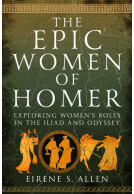William Phipps and the Diving Bell Bubble (Hardback)
Sunken Treasure, Witches and the Route to Empire
Imprint: Pen & Sword History
Pages: 248
Illustrations: 30 mono illustrations
ISBN: 9781399054591
Published: 4th March 2025
(click here for international delivery rates)
Need a currency converter? Check XE.com for live rates
| Other formats available | Price |
|---|---|
| William Phipps and the Diving… ePub (16.2 MB) Add to Basket | £14.99 |
William Phipps’ rise to fame and fortune was meteoric. His short and hectic life was punctuated with many unlikely achievements, of which raising treasure from the wreck of a Spanish galleon was the most famous. For this, he was knighted. Locating his Spanish prize was no fluke. Phipps had worked on the project for years. As in all his endeavours, success was achieved mainly by force of character. His determination and drive saw him become, in turn, a shipwright, a mariner, treasure hunter, merchant, general, an admiral, an Indian fighter and a reforming royal governor.
Born a backwoodsman, Phipps became one of the wealthiest and most influential men in seventeenth-century Boston. He mixed with members of the colony’s most prestigious families, whose members were clerics, magistrates, merchants, and lawmakers. But he was never fully accepted as their equal.
Boston was a victim of its own ultra-Puritan origins. Its ruling families were entrenched and committed to its drawn-out (and until this point largely unsuccessful) campaign for independence from England and English laws. Appointed by an English king to govern the province of Massachusetts Bay, Phipps brought his pugnacious, overbearing, no-nonsense approach to bear. He had his admirers, but he also made many enemies. These included his own deputy governor, who thought himself belittled when Phipps put a stop to the hanging of Salem's ‘witches’.
There were sufficient detractors to persuade the Lords of Trade to investigate, and Phipps was recalled to London to answer his critics. There was no investigation and no hearing. Phipps did not survive long enough. He died in London, his life ended by a flu-like infection. He was just forty-four. Phipps had been a champion for his ungrateful New England colony and even after death an inspiration for a new generation of English inventors and investors. He ignited interest in diving and diving bells, and in new means of finance and investment.
There are no reviews for this book. Register or Login now and you can be the first to post a review!
About Leon Hopkins
Leon Hopkins is a journalist and author.
After a short career in financial analysis, he joined Accountancy Age, which he later edited. Other accountancy titles followed as did writing for, editing and publishing a variety of business and professional magazines. Leon has written for national newspapers and is author of non-fiction books on subjects ranging from auditing to letting. The Hundredth Year described the history of the accountancy profession in England and An Armenian Family Torn Apart, which he translated, describes life during the Armenian Genocide. He also has a published novel to his name, There’s Only One Henry Green.
The Pirate who Stole Scotland William Dampier and the Creation of the United Kingdom (Hardback)
Economic warfare is not a new phenomenon. In the protectionist climate of the seventeenth century, trade embargoes, exclusions and boycotts were common. England was among the most active nations when it came to using economic clout to get its own way. It did so to force Scotland to accept an Act of Union: to submerge its independence within a United Kingdom governed from London. Instrumental in this attack upon the Scots was William Dampier, the principal subject of this book. He was an extraordinary man. A farmer’s son, he became the most travelled man of his generation. He was a pirate, a…
By Leon HopkinsClick here to buy both titles for £45.00















